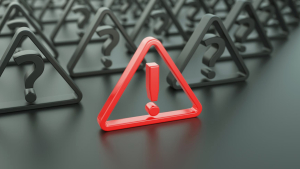An insult drives the pulse. But what if you are always insulted: do you get used to it? No, says the neuroscientist Marijn Struiksma from the University of Utrecht. In an experiment, you and your team compared physical reactions to negative statements with reactions to positive or neutral statements.
As they report in the "Frontiers in Communication", they pursued the brain activity and skin conductivity of around 80 subjects, while they repeatedly read insults, compliments or neutral sentences, for example "Paula is a bitch", "Paula is a treasure" Or "Paula is a student". The sentences were supposed to come from different men, and the name mentioned was sometimes a stranger, sometimes the test subject itself.
The subjects reacted significantly to the verbal attacks - even if they were directed against strangers. In all three statements, the researchers first observed a characteristic brain wave, called »P200«. This electrical signal pattern is a sign of increased attention. In contrast to compliments or neutral statements, the signal also occurred again and again even with repeated insults, regardless of whether the person himself was insulted or another. "An indication of a very fast and stable attention reaction," explain the authors. Attention is subject to a "negativity bias": it automatically focuses more on negative than on positive signals.
Insults signal a conflict
In addition, skin conductivity also rose, regardless of whether the name fell or that of a stranger. However, this effect, a sign of emotional excitement, decreased with repeated insults and was then no longer stronger than with compliments. The researchers explain that the reduced emotional reaction could also be due to the laboratory situation. However, a field experiment is ethically not justifiable.
But even under the standardized laboratory conditions, the insults seemed like "mini-blows to the face," as Marijn Struiksma put it in a press release. The verbal attacks signaled that there was a social conflict. And this is perceived as threatening: "People are extremely social beings who attach importance to maintaining their relationships.«



















